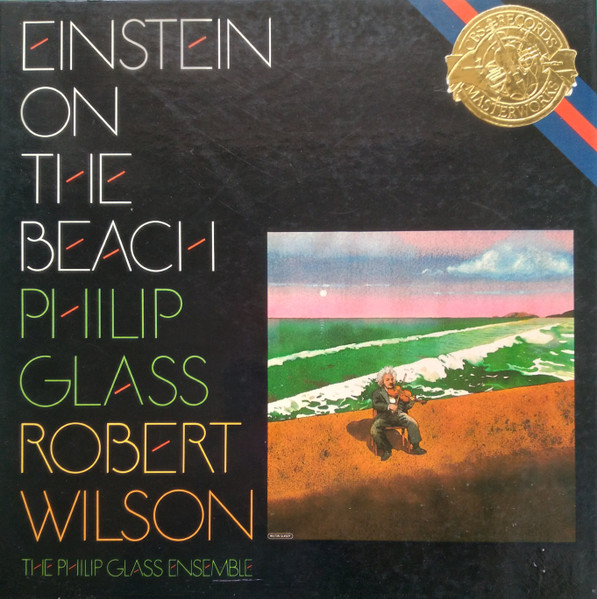Philip Glass wrote his longest opera in 1975, and it was premiered in Paris the next year. This recording is a little shorter, but it is the first recording of it, made in 1978. Glass wrote it in cooperation with theatre producer Robert Wilson. It was the first in a series of portraits, followed by Satyagraha about Gandhi, and Akhnaten about the Egyptian revolutionary farao of the same name.
The title might have come from apocalyptic novel On the beach by Neville Shute. There are also references to nuclear weapons in the opera, along with his theory of relativity and his unified fields theory. Structurally the opera is in four acts, with five so called Knee plays in between.
There is no plot to this opera. Instead Glass tried to paint a picture of the character of Einstein using pieces of words, poetry and music. For instance, the first of the knee plays has a series of numbers that are supposed to represent pieces of text. Instead of actually replacing them, Glass chose to keep them that way, as just numbers. They represent the icon of Einstein without actually mentioning him.
This radical approach leads to an opera that is for me difficult to hear. Philip Glass is a minimalist, and I find that genre of music very annoying after say, one minute. Musical minimalism is about tiny, minimal changes in a repeating fabric of music. This repetition is by its very nature annoying to me. I do admit that after half an hour I got used to it, and was able to see some beauty through my irritation.
